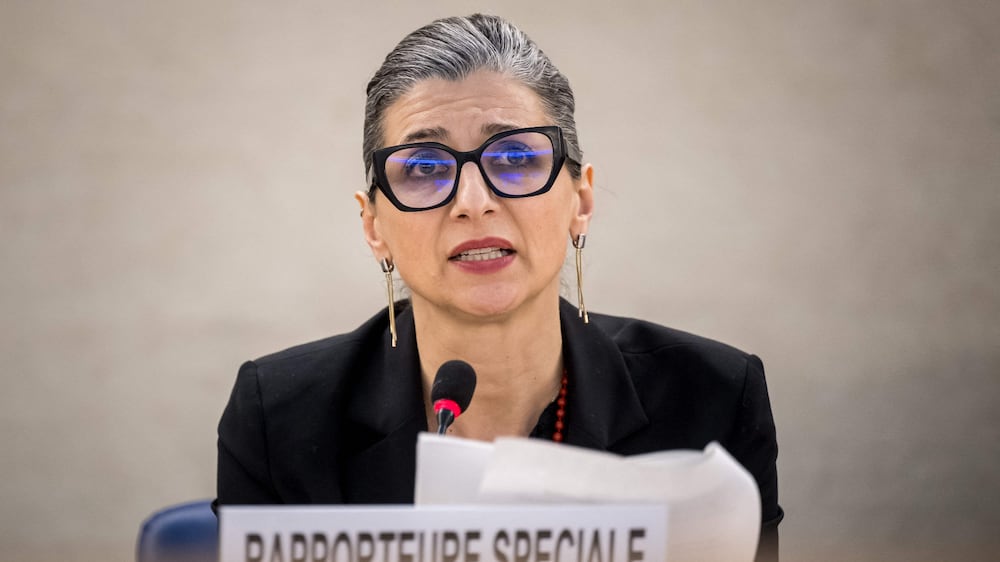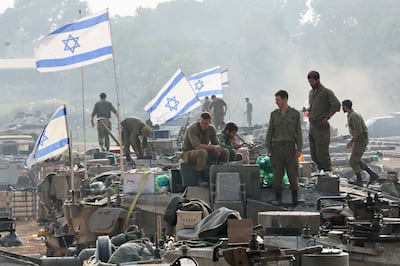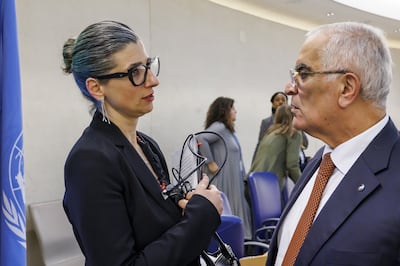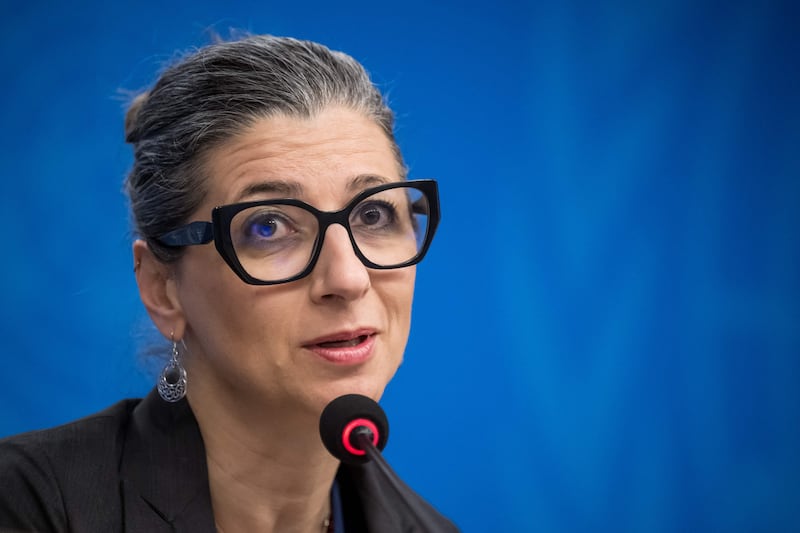Live updates: Follow the latest news on Israel-Gaza
The UN Palestine envoy Francesca Albanese has long divided opinion but her fierce criticism of Israel’s assault on Gaza has exposed her to a crescendo of scrutiny and threats she insists will not silence her.
To admirers, the outspoken Italian lawyer – who this week accused Israel of genocide – is standing up for Palestinians against the powerful voices of the US, Israel and the West.
Israel’s supporters say Ms Albanese, a former lawyer for the aid agency UNRWA, is biased, has a history of anti-Semitic comments and is an apologist for Hamas.
Or worse.
Since the Israel-Gaza war began, the inbox and social media accounts of the special rapporteur on human rights in the Palestinian territories have been flooded with highly charged and abusive messages that she says include death threats.
Typical pro-Israeli posts call Ms Albanese a “shill for Hamas”, a “spokesperson for anti-Semitism”, a “terrorist apologist”, a “Jew hater”, a “biased activist” or “one of the worst human beings alive”.
Her most extreme critics would be happy if “lightning would strike you”, tell her she “deserves the death penalty” and say the Hamas violence of October 7 “should happen to you and your family”.
UN expert says Israel has committed genocide in Gaza

The threats amount to “nothing that so far I have considered needing extra precautions”, Ms Albanese said after presenting her Anatomy of a Genocide report to the UN.
But from her home in Tunisia, she has warned friends she cannot keep up even with well-meaning correspondents who approach her for advice or “small chit-chat”.
Her team of volunteers has also faced “misbehaviour and impatience”, she says. The US State Department spokesman Matthew Miller said “death threats against anyone are inappropriate" even as he rejected her claim of genocide as unfounded.
Special rapporteurs are unpaid, are not official UN staff and do not have offices in New York or Geneva. Ms Albanese has also been barred from visiting Israel, which wants her sacked.
In rare cases the UN can hire armed bodyguards for its rapporteurs if a host country is unable to provide security. Israel’s visa ban means Ms Albanese has been assessing the war in Gaza from abroad.
A more colourful media performer than many dry UN meeting regulars, Ms Albanese admitted she is sometimes “not particularly strategic in how I pick my fights”.
But she showed no regrets about inviting Israeli anger, by rejecting anti-Semitism as the motive for Hamas’s October 7 attack, as she said: “I faced the consequences and I’m still alive”.

A University of Pisa graduate, Ms Albanese wrote in her application for the UN role that her "upbringing as a girl in a socially conservative part of the south of Italy" helped shape her belief in law and justice.
Appointed to the UN position in 2022, she has been scrutinised for anti-Israel remarks dating back to her time working for UNRWA in Jerusalem.
In a 2014 UNRWA fundraising post she spoke of a “Jewish lobby” in America, in what Israel called an anti-Semitic trope. She said her remarks were taken out of context when they resurfaced in 2022.
Palestinian officials said she was the victim of a “co-ordinated assault on her character” as it praised her “sound legal assessment” of the Middle East conflict.
An author on the conflict and a lecturer at universities in Bethlehem and Birzeit, in the West Bank, Ms Albanese admitted in 2021 she has “deeply held personal beliefs” on the Palestinian cause.
Last year a group of pro-Israel lawyers wrote to the UN Secretary General Antonio Guterres calling for her sacking, accusing her of “unhinged anti-Israeli bias and endorsement of terror”.
After October 7 she courted controversy again by saying the Hamas attacks of that day were not anti-Semitic but took place “as a reaction to Israel’s oppression”.

France called those comments “scandalous” and Germany said making them in a UN capacity “is a disgrace”, but Ms Albanese has refused to back down, saying Israel “created the conditions” that led to the attack.
Her stance has won her plenty of support at the UN, where diplomats applauded after she presented her genocide report to the human rights council in Geneva.
The report said there were “reasonable grounds” to believe Israel was guilty of genocide by intentionally killing Palestinians and making Gaza impossible for them to live in.
“Your commitment to defending human rights offers hope in these trying times,” Ola Adawi of Palestine’s independent human rights commission told Ms Albanese.
Pakistan told the special rapporteur it “commends your courage” for accusing Israel of genocidal intent, while Egypt said she was the victim of “unjustified attacks”.
Zachary Foster, a historian of Palestine, praised Ms Albanese’s “heroic work”.
Ms Albanese will never stand down “because they vilify or they mistreat me in the public discourse”, she said.
But she “might decide at some point to step out simply because I also have a private life that I would like to enjoy”.






